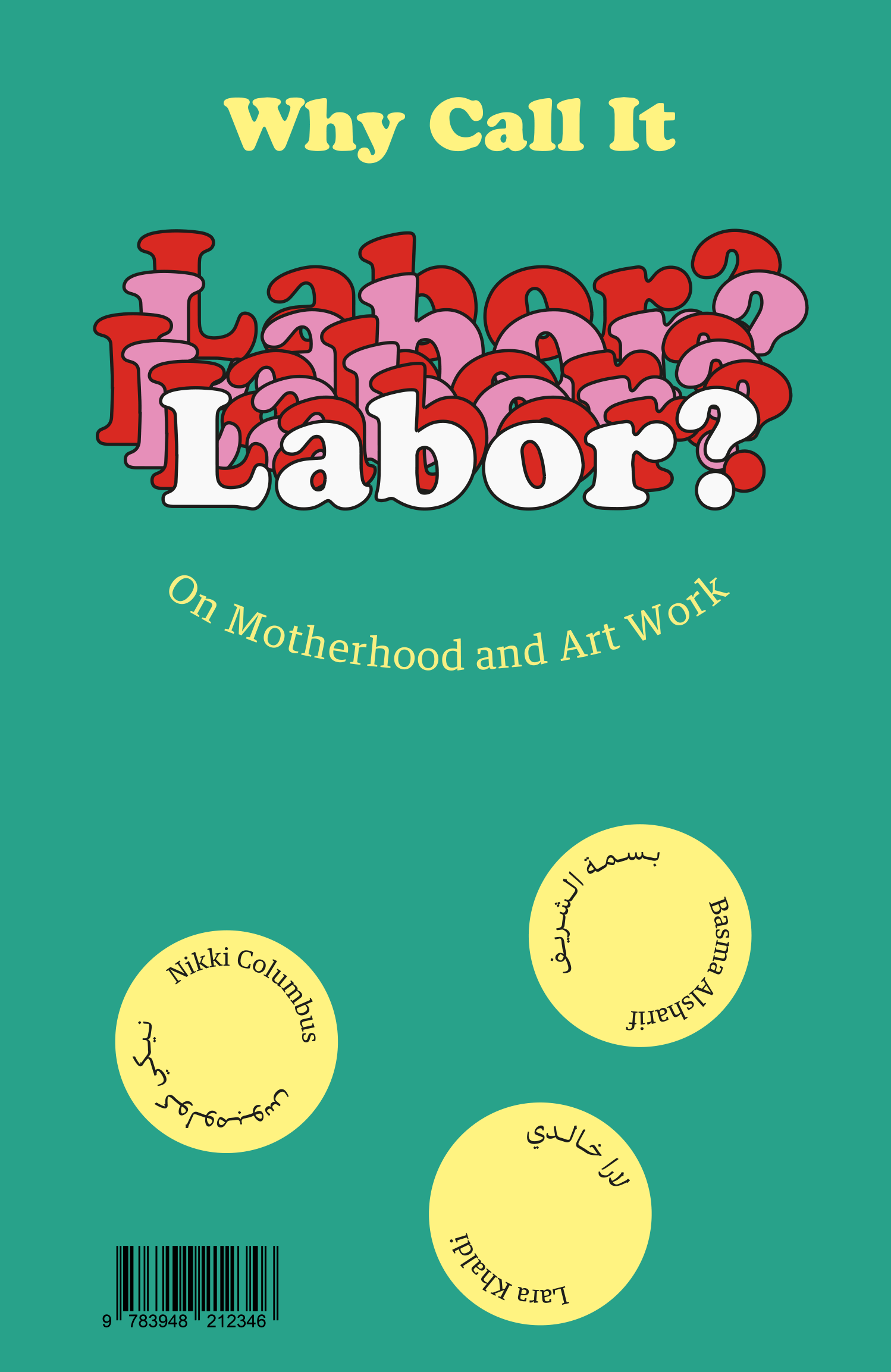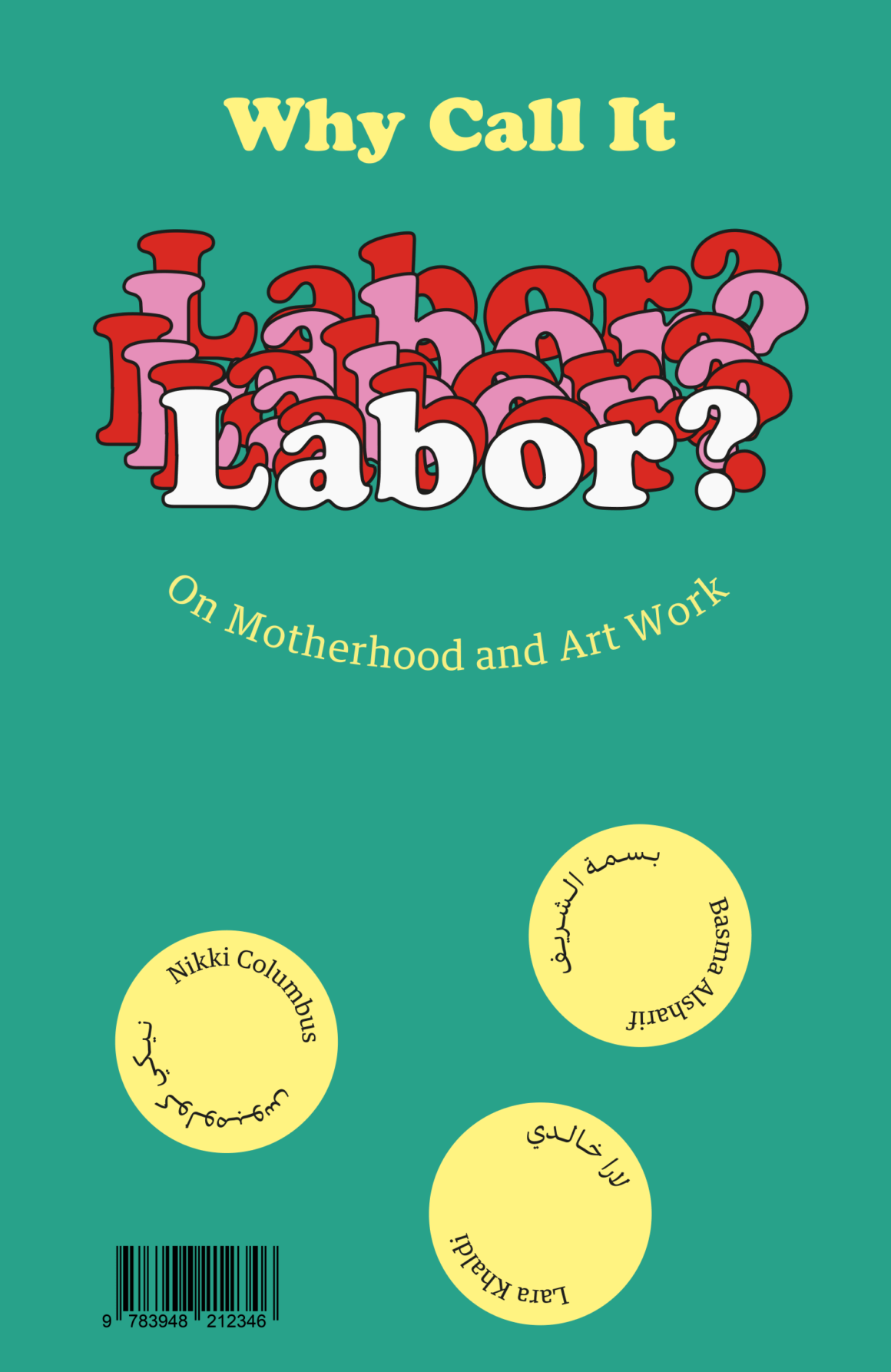
Why Call It Labor? comprises four essays and one conversation with contemporary artists and curators discussing their experience of becoming mothers as professionals in the arts, its reality and effects. While their reflections represent a similar strata of art worker in terms of background, class, and career trajectory, the impact of instruments of patriarchy on rendering maternity invisible that they describe is recognizable and insidious. In a post-partum diary, Lara Khaldi makes audible the everyday exhaustion and disregard that comes with being a new mother; Mirene Arsanios and Nikki Columbus discuss the impact of the absence of legal or social protection for mothers; Basma Alsharif walks us through the difficulties of navigating the demands of different social contexts; Mary Jirmanus Saba pre-occupies at home with a flimsy maternity blog; And Mai Abu ElDahab put propositions on the table for how to deal with all of this.
“Early on, during the insomnia and heartburn delirium of my pregnancy, I started writing about a bottle of ouzo I had picked up at the Athens airport duty-free sometime in my first trimester. The label on the bottle had a picture of a carefree strawberry-blonde barefoot young woman twirling in a short white skirt and tight red top. When I turned the bottle around, I found a tiny silhouetted figure of a pregnant woman with a ponytail (the woman always has a ponytail) bringing a glass of wine to her mouth. This sad little woman, trying to enjoy a drink in the shadows, was unaware of the ominous red circle and bar across her belly.”
You can continue reading this excerpt here.
Why Call it Labor?
On Motherhood and Art Work
Contributions by Mai Abu ElDahab, Lara Khaldi, Mary Jirmanus Saba, Mirene Arsanios and Nikki Columbus and Basma Alsharif
English copy-editing and proofreading
by Jenifer Evans
Arabic copy-editing and proofreading
by Sherine Younes
